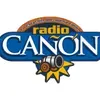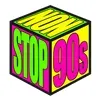Retro Live Radio Stations
Radio Stations
- GOLDIES by rautemusik (rm.fm)

- Hitz.FM Singapore

- i love radio - hits historyi love radio - hits history
- Ice

- Infinity Radio ArgentinaInfinity Radio Argentina
- Infinity Radio ArgentinaInfinity Radio Argentina
- KISS FM (Campeche) - 101.9 FM - XHCAM-FM - Grupo SIPSE - Campeche, CM

- KISS FM (Chetumal) - 95.3 FM - XHROO-FM - Grupo SIPSE - Chetumal, QR

- KISS FM (Ciudad del Carmen) - 95.5 FM - XHPCAR-FM - Grupo SIPSE - Ciudad del Carmen, CM

- KISS FM (Mérida) - 97.7 FM - XHGL-FM - Grupo SIPSE - Mérida, YU

- KISS FM (Mérida) - 97.7 FM - XHGL-FM - Grupo SIPSE - Mérida, Yucatán

- La Dorada (Córdoba) - 107.5 FM - XHKG-FM - NTR Medios de Comunicación - Córdoba, VE

- La Dorada (Córdoba) - 107.5 FM - XHKG-FM - Radio Cañón / NTR Medios de Comunicación - Córdoba, Veracruz

- LA OCTAVA (Ciudad de México) - 88.1 FM - XHRED-FM - Grupo Radio Centro - Ciudad de México

- La Octava (Ciudad de México) - 88.1 FM - XHRED-FM - Grupo Radio Centro - Ciudad de México

- LA OCTAVA (Guadalajara) - 700 AM - XEDKR-AM - Grupo Radio Centro - Guadalajara, JC

- LA OCTAVA (Monterrey) - 1540 AM - XESTN-AM - Grupo Radio Centro - Monterrey, NL

- La Poderosa (Mexicali) - 96.9 FM - XHMUG-FM - Radiorama - Mexicali, BC

- La Poderosa (Mexicali) - 96.9 FM / 1050 AM - XHMUG-FM / XED-AM - Radiorama - Mexicali, Baja California

- La Zeta (Navojoa) - 88.9 FM - XHENS-FM - Uniradio - Navojoa, SO

- LaMarca 94.0

- Laza Rádió (OGG 320 Kbps)

- Lazer Hot Hits

- Más FM (San Luis Potosí) - 99.3 FM - XHTL-FM - MG Radio - San Luis Potosí, SL

- Mas Radio (Nogales) - 107.9 FM - KCKO-FM - Mas Medios Nogales - Nogales, Sonora

- Mega Rádió

- Motown Radio

- Multiplayer

- MVS Noticias - 102.5 FM - XHMVS-FM - MVS Radio - Ciudad de México

- Non-stop 90's

- OpenFM - Retro Café

- Orion FM

- ORO 94.9 (Puebla) - 94.9 FM - XHORO-FM - Grupo ORO - Puebla, PU

- P9 Retro

- Panda FM - Online - Ciudad de México

- Panda FM - Online - El Panda Zambrano - Ciudad de México

- PasiradioPasiradio
- Power-Maxx

- Pure Hits RETRO

- Rádió 88 Retro

- Radio Back in Itime

- Radio Bergamo

- Radio Boituva 1480 AMRadio Boituva 1480 AM
- Radio Cañón (Guadalajara) - 95.9 FM - XHABCJ-FM - Radio Cañón / NTR Medios de Comunicación - Guadalajara, Jalisco

- Radio Capital TiVù

- Radio FG BelgiumRadio FG Belgium
- Radio GMusic Retro

- RADIO MAXIMA DEL PERU

- RADIO PODER RETRORADIO PODER RETRO
- Rádio Retrô 99 FM
